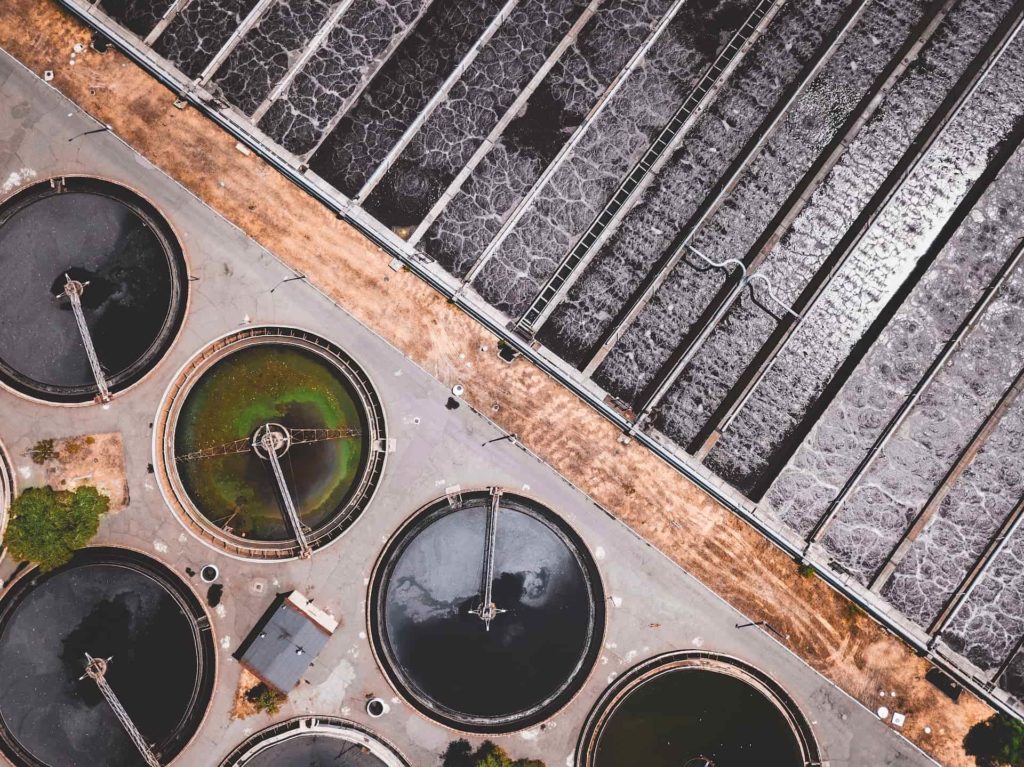Industrial processes, including wastewater treatment, tend to result in some wasteful byproducts. For example, these processes often create sludge, a semi-solid slurry that can be difficult to transport for disposal. To assist with the waste management process, industrial facilities often engage in a process called sludge dewatering, which filters out solid waste into concentrated cakes. These cakes are much easier and more cost-effective to get rid of.
The sludge dewatering process also results in wastewater, which is the liquid waste that’s extracted from those high-solid cakes. This wastewater can be recycled, which is one of the main benefits of the sludge dewatering process.
Indeed, there are a number of ways in which wastewater recycling can be beneficial.
What are the Advantages of Wastewater Recycling?
1) Reducing environmental impact.
For example, one benefit of wastewater recycling is that it allows industrial facilities to reduce their environmental footprint.
By implementing large-scale filter press technologies, mining and mineral processing companies can effectively manage mine tailings, dry stacking them instead of using tailings ponds. In the process, this allows mining and mineral processing companies to minimize the risk of leaks, wildlife exposure to contaminated water, and more.
2) Minimizing freshwater stress.
There’s always high demand for freshwater… and sometimes, there’s insufficient supply to meet that demand. For example, agricultural companies and landscaping businesses always need large reserves of freshwater to use in their irrigation processes. During seasons of drought, the freshwater market can be particularly stressed. But recycled wastewater is usually perfectly well-suited to meet this demand.
The bottom line? By reusing their wastewater, industrial and municipal organizations can actually contribute to the world’s freshwater supply.
3) Eliminating water transportation needs.
Recycling and reusing wastewater is considered to be a smart business practice, not a waste disposal liability. Indeed, it can help companies become nimbler and more profitable.
Why is this the case? Well, transporting freshwater to offsite facilities can be incredibly pricey. But many companies have discovered ways to recycle wastewater on-site, and then use that recycled water for their own in-house industrial applications. This eliminates the costly and wasteful need for freshwater transportation.
4) Boosting sustainability.
The term sustainability is frequently invoked, but little understood. Basically, it just means meeting the needs of today without compromising the resources available tomorrow.
Recycling wastewater can be a great way to enhance sustainability. Not only does it allow a way to reuse wastewater for future industrial applications, but it also makes it easier for companies to dispose of solid wastes, rather than leaving them on-site where they can potentially become hazardous.
5) Avoiding regulatory issues and fees.
A final benefit to recycling wastewater is that it can help industries and organizations to avoid expensive non-compliance fees.
Simply put, discharging of waste can be difficult, and failure to do it properly may result in the incursion of penalties. One way to avoid the issue altogether is to simply reuse or recycle liquid wastes on-site.
Learn More About Effective Ways to Recycle Wastewater
There are countless ways in which wastewater recycling can be beneficial, not only in helping organizations to meet their environmental goals, but also in making them leaner and more efficient.
To realize any of these benefits, it’s crucial to have the right technology. That’s where P&H Senesac comes into play. For decades, we have been a leading provider of sludge dewatering technology, including best-in-class centrifuges and beyond.
We’d love to tell you more about the tools we can provide for effective wastewater recycling. To start a conversation with us, reach out to P&H Senesac at your next opportunity.



